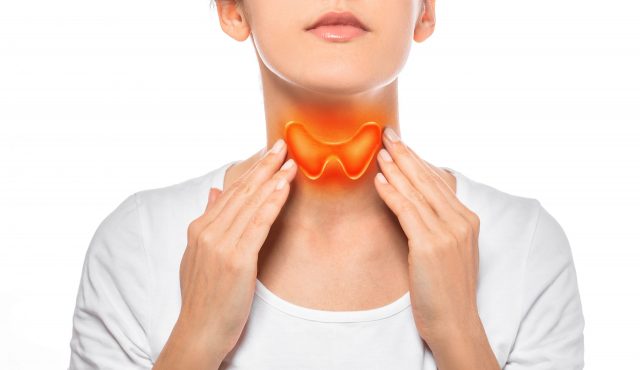

Laura’s Questions: I am on 25 mcg of Levothyroxine for 6 yrs with hypo symptoms, every one! My endocrinologist just took a panel, and the results are the following:
Should we up my dose of Levothyroxine to 50 or should I just switch to Synthroid or Armour? Thanks!
Short Answer: We typically don’t recommend or prescribe Levothyroxine or Synthroid for our patients. Both of these medications only contain the T4 hormone. This is referred to as T4 Monotherapy. These medications do a good job of lowering the TSH level but do not always help the patient feel better. We like to prescribe thyroid medication that contains both the T4 and T3 hormones. In our experience, our patients tend to feel much better on a combination medication, rather than on a T4-only medication.
In our opinion, we feel that sustained-release compounded thyroid medication is the best option most of the time. This type of thyroid medication gives the doctor many dosing options, which is certainly good for the patient and their overall symptom profile. Because this medication is compounded, the T4 and T3 hormones can be changed independently of the other hormone. With a commercial prescription, there are only so many dosing options, and both hormones are affected when raising or lowering the dosage. Also, the sustained-released nature of the medication helps to reduce any unwanted side effects that are common with commercial instant-release thyroid medications.
Related Podcast Episode:
PYHP Episode 038 – Do You Have a Low Free T3 Level?
Check out Dr. Davidson’s new book – The Perimenopause Plan
Buy the book on Amazon.
If you have questions about your thyroid or any other hormone related issue, feel free to contact us.
The post Is Armour Thyroid Better Than Levothyroxine? | PYHP 120 appeared first on .
Discover the common and unfamiliar symptoms that you might be experiencing. Get access to cases of real women with hormonal conditions.

In this episode, we return to a listener’s question regarding thyroid dosing in perimenopause. In our previous episode, we answered Tracy’s question about taking estrogen in perimenopause. Tracy also asked us an additional question about her thyroid doses. Tracy does not have a thyroid gland and has been noticing her dose is continually increasing as […]
In this episode, we discuss a listener’s question regarding perimenopause and estrogen hormone replacement. Tracy is concerned because she is still having a period but also has symptoms of low estrogen. She is not sure if she is a candidate for estrogen therapy since she is still cycling. Tracy’s Question: Hi- you’ve discussed in past […]
In this episode we discuss Jenell’s question she submitted on our website (Ask the Dr). Jennell has been having terrible anxiety since entering menopause and it is really affecting her quality of life. Jenell’s Question: Since starting menopause, I’ve had debilitating anxiety, especially bad in the morning. By evening, It practically goes away. I’m 54 […]
In this episode, we discuss a listener’s question. Amanda is 50 years old and starting to have menopausal hot flashes and weight gain. However, she is most concerned about the heart palpitations she is having. Amanda has had a cardiovascular workout and does not have heart disease. Most people might not be aware, but feeling […]
In this episode, we discuss a listener’s question about perimenopause. ‘Maggie’ is in her 40’s and experiencing severe insomnia with anxiety. She has tried supplements and different doses of progesterone with minimal results. She is having so many ups and downs with her insomnia, anxiety, and hormones. She is wondering how long this is going […]
In this episode, we talk about Mary’s hormone concerns after ovarian failure. She is only 34, and in the last 7 years since her ovarian failure has tried many hormone replacement options, all without the success she was looking for. Let’s Read Mary’s Question: When I was 27 years old I was diagnosed with iatrogenic […]